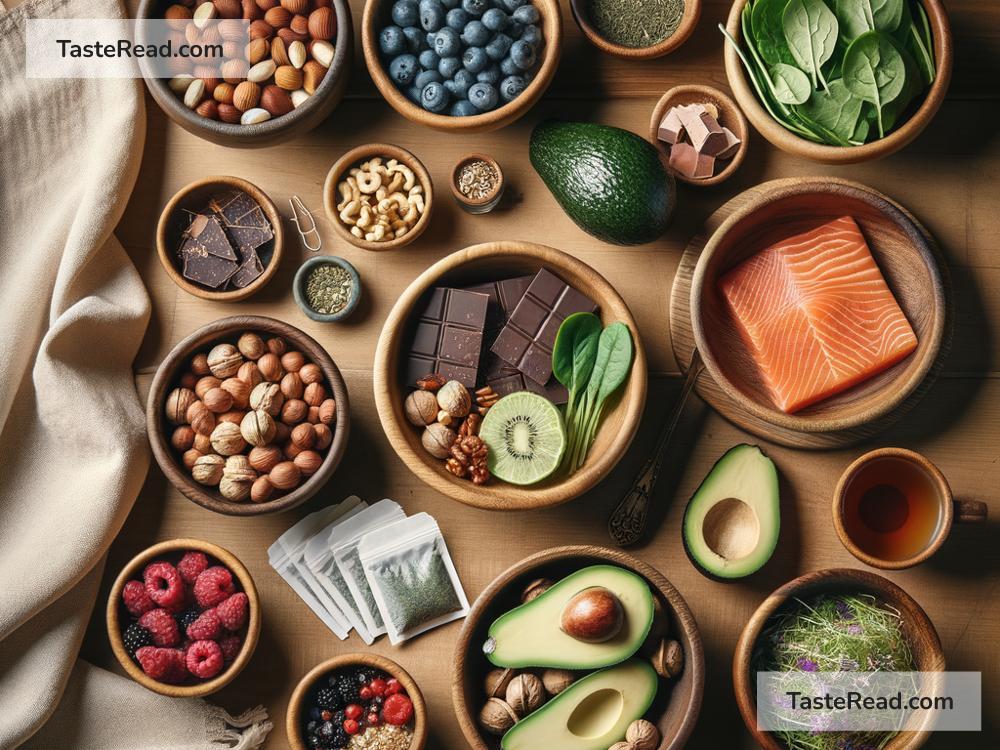Foods That Can Help Reduce Emotional Reactivity
When life feels overwhelming, staying calm and steady can seem impossible. Emotional reactivity—the tendency to react strongly to stress, anger, or sadness—can make us feel out of control. While many factors influence how we respond to emotions, the food we eat plays a surprising role in how our body and mind handle stress. Choosing the right foods can help promote emotional balance and calmness.
In this article, we’ll explore simple and nourishing foods that can help reduce emotional reactivity. These foods don’t work overnight, but over time, eating them regularly can support your mood and mental health.
How Food Affects Your Emotions
The connection between food and emotions starts in the brain. When you’re stressed or reactive, your brain releases hormones like cortisol that make you feel on edge. Certain foods can help by balancing the levels of these stress hormones, providing nutrients that support brain health, and increasing the production of feel-good chemicals, like serotonin.
Eating a balanced diet of whole, natural foods can help stabilize mood swings and protect your body from the effects of chronic stress. On the other hand, processed foods, sugary drinks, and junk food can amplify emotional ups and downs, making you feel worse over time.
Foods to Soothe Emotional Reactivity
Here are some foods that can help calm your mind and promote emotional resilience:
1. Fatty Fish
Fish like salmon, mackerel, and tuna are rich in omega-3 fatty acids. These healthy fats are essential for brain health and can help reduce inflammation that may trigger mood swings. Omega-3s also increase serotonin levels, which is a chemical that promotes feelings of happiness and calmness.
Aim to eat fatty fish at least two times a week, or consider a high-quality omega-3 supplement if fish isn’t part of your diet.
2. Whole Grains
Whole grains like oats, brown rice, quinoa, and whole wheat bread are packed with fiber and complex carbohydrates. These carbs slowly release energy, ensuring your blood sugar stays stable instead of spiking and crashing.
Stable blood sugar is crucial for managing emotions because blood sugar highs and lows can make you feel irritable or anxious.
3. Leafy Greens
Vegetables like spinach, kale, and Swiss chard are full of magnesium, a mineral that helps relax both the body and the mind. Low magnesium levels can lead to increased feelings of stress and sensitivity.
Add leafy greens to your meals as salads, smoothies, or side dishes to help calm your nerves over time.
4. Nuts and Seeds
Almonds, walnuts, sunflower seeds, and chia seeds are all fantastic sources of healthy fats and important nutrients like magnesium, zinc, and vitamin E. Nuts and seeds help reduce oxidative stress in the body, which can worsen emotional reactivity.
Snack on a handful of nuts or sprinkle seeds on your yogurt, oatmeal, or salads for a quick mood-boosting addition to your day.
5. Fermented Foods
Fermented foods like yogurt, kefir, sauerkraut, and kimchi are excellent for gut health. A healthy gut microbiome has been linked to better mental health and reduced anxiety, thanks to the “gut-brain connection.”
Probiotics in these foods can help keep your digestive system functioning while supporting the production of serotonin, your body’s happiness hormone.
6. Berries
Blueberries, strawberries, and raspberries are rich in antioxidants and vitamin C, which help counteract the physical effects of stress. High stress levels can damage your body’s cells, and antioxidants work to repair this damage.
Snack on fresh berries, blend them into smoothies, or enjoy them with yogurt to give your brain a boost.
7. Dark Chocolate
Good news for chocolate lovers! Dark chocolate (at least 70% cocoa) contains compounds called flavonoids that improve blood flow to the brain and enhance mood. It also promotes the release of endorphins, which can help you feel more relaxed.
Remember to enjoy dark chocolate in moderation—a small piece is enough to satisfy and support emotional balance.
8. Herbal Teas
Certain herbal teas like chamomile, lavender, and green tea can have calming effects on your nervous system. Chamomile, for instance, is known for its ability to reduce symptoms of stress and help with sleep.
Enjoy a warm cup of herbal tea during moments of stress or as part of a relaxing evening routine.
Foods to Avoid
Just like certain foods can help calm your emotions, others can make emotional reactivity worse. These include:
- Processed Foods: Chips, cookies, and instant meals are often low in nutrients and high in refined carbs or unhealthy fats, which can spike blood sugar and increase stress.
- Sugary Drinks: Sodas and energy drinks cause blood sugar crashes and irritability.
- Excessive Caffeine: Coffee and caffeine can make you feel jittery and amplify stress.
Final Thoughts
We all experience moments of emotional reactivity, but the foods we choose can act as powerful tools to help us stay balanced and calm. Nourishing your body with foods like fatty fish, whole grains, and leafy greens will provide the foundation for healthier emotions over time.
While food alone can’t solve every emotional challenge, pairing a healthy diet with good sleep, regular exercise, and stress-reducing activities like meditation can make a big difference. Take small steps to incorporate these calming foods into your meals and be kind to yourself during stressful times—you’ve got this!
By making mindful choices about what we eat, we can nourish our minds and bodies, helping us stay more resilient during emotional ups and downs.


